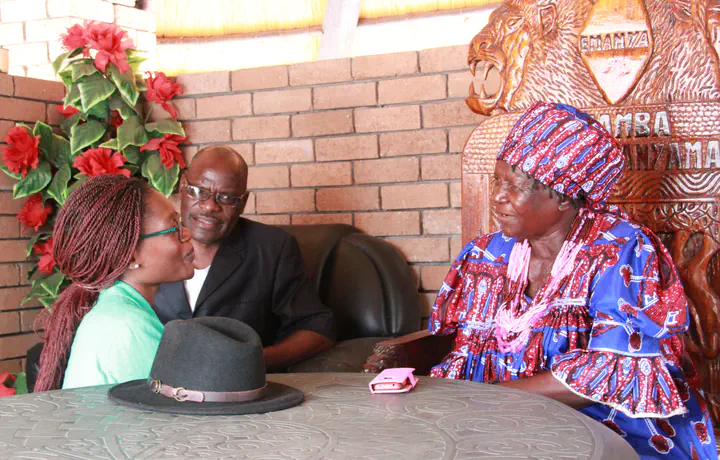When female leaders believe that men make better leaders: Empowerment in community-based water management in rural Namibia
 Martha Nelumbu (right), first Queen of the Oukwanyama, receives research assistant Parista Mengela Logonda (left) in her palace in Omhedi, Ohangwena Region. Credit: Ivo Steimanis, 22.09.2014
Martha Nelumbu (right), first Queen of the Oukwanyama, receives research assistant Parista Mengela Logonda (left) in her palace in Omhedi, Ohangwena Region. Credit: Ivo Steimanis, 22.09.2014
Abstract
Decentralization of water management in Namibia follows a community-based co-management approach, emphasizing the inclusion of women in local leadership. Building on a random sample of 32 water point chairpersons, 17 female and 15 male, and 384 villagers in rural northern Namibia, we document that women are equally represented as chairpersons and that they are significantly more educated and younger than their male counterparts. However, most of the female leaders come from the family of the traditional leader. We then show that opinions about the role of a leader (such as the belief that ‘men make better leaders’ or ‘it is sometimes acceptable to take a bribe’) do not differ between male and female leaders. However, their opinions differ significantly from those of the average villager. Thus, our assessment reveals that although men and women are equally represented in numbers, it has not necessarily led to the adoption of new ideas about and conceptions of leadership and gender roles in practice so far. We discuss how some aspects of the democratic blueprint are accepted while others are rejected, adapted, or transformed to fit local specificities.